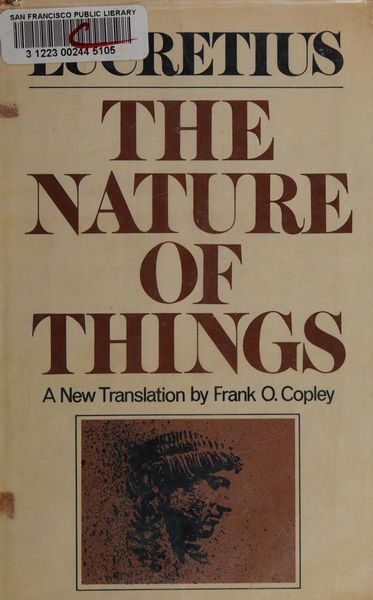
On the Nature of Things
As Stephen Greenblatt recounts in The Swerve, when a Renaissance-era book hunter rediscovered Lucretius's ancient manuscript, the book's champions risked their lives to have it published. In the tradition of Epicurus, On the Nature of Things sets forth the concept of atoms that unite to form matter and dissipate with time, and refutes the existence of gods. Lucretius considers the fear of death to be the source of most human ills, and seeks to dispel it by demonstrating that the soul, like the body, dissolves painlessly into its constituent atoms after death. There is no afterlife, therefore no cause for fear. Lucretius's masterwork stands with Virgil's Aeneid as one of the great achievements of Latin literature, rendered here into English by the preeminent translator of Latin, Frank O. Copley.